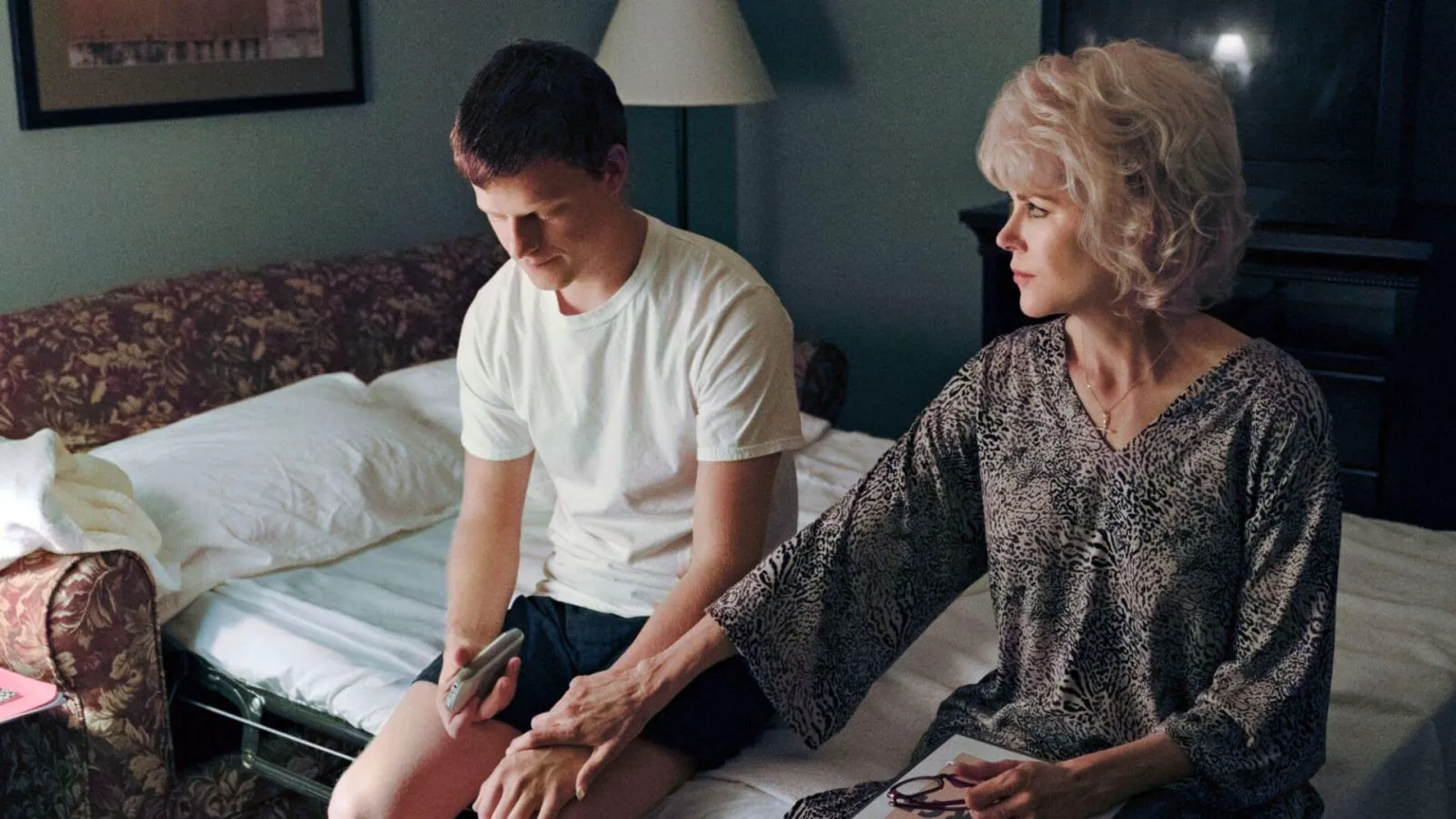Erased Identity: When a Drama About Conversion Therapy Becomes a Safe, Family-Friendly Film
Once Jared (Lucas Hedges) breaks up with his high school girlfriend due to her aggressive advances, he heads off to college. There, he’s assigned a roommate, a seemingly simple guy from a Catholic family, who ends up raping Jared one night and confessing to having other victims. Jared returns home and tells his parents (Nicole Kidman in a questionable wig and Russell Crowe sporting a dad bod) that he sometimes has thoughts about men. He’s then given an ultimatum: either attend a reparative camp to “cure” him, or get out of the family.

Interestingly, 2018 saw two films tackling the now-discredited practice of conversion therapy. These reparative camps supposedly used faith in God to rid young people (both boys and girls) of any expression of sexual freedom. If that didn’t work, the rule was “Fake it till you make it.” First, Desiree Akhavan’s drama “The Miseducation of Cameron Post,” starring Chloë Grace Moretz, won over the Sundance Film Festival. Then came “Erased Identity,” which aimed for awards season glory. Thankfully, it didn’t quite make it.

Both films, based on books of the same name, follow a similar, predictable script: a failed high school relationship, a difficult life in camp where a peer inevitably commits suicide, and the long-awaited self-acceptance. However, while Akhavan’s film emphasizes ditching family and trusting understanding friends, “Erased Identity” focuses on parental relationships, from whose approval the protagonist’s coming-out begins. The film is quite conservative, almost as if the groundbreaking “Moonlight,” which should have changed the approach to films about self-identification, never existed. “Erased Identity” feels like a relic from the early 2000s. Back then, it might have seemed original, if not radical; now, it’s just sterile Oscar bait for older members of the Academy and conservative parents.

Missed Opportunities and Familiar Tropes
A few years ago, Joel Edgerton made his directorial debut with “The Gift,” a thriller inspired by Haneke, where every detail seemed to build suspense and could change the story at any moment. “Erased Identity” lacks such details, instead relying on broad strokes and clichés that it doesn’t explore. Take the rape, for instance, which could have enriched the story by examining the protagonist’s trauma or his potential inability to communicate and trust others. But it’s simply absent because Edgerton prefers to stay in his comfort zone, avoiding any hint of risk. Need to show the horrors of therapy? Cue the slow-motion scene of participants and family members beating a teenager with Bibles in front of a coffin, accompanied by mournful cello music.
The strained relationship between the protagonist and his father? Cue a meaningful scene where Jared closes the door in his father’s face in slow motion, without the cello, but with equally sad music. Surely, discussing important and provocative topics shouldn’t rely on such conventions.
Star Power Can’t Save It
The film’s star-studded cast doesn’t help much either. Troye Sivan and Xavier Dolan are relegated to the background, seemingly for the sake of appealing to the LGBTQ+ community. Russell Crowe sadly wanders around in baggy pants, Nicole Kidman cries and argues, hoping for a nomination, and Lucas Hedges plays yet another troubled son, or perhaps just a rehash of his character from “Lady Bird.” On the other hand, what can you expect from a script that seems written solely for the final credits, which practically state: conversion therapy still exists, and it’s very bad! Now, give us some awards for saying it out loud.